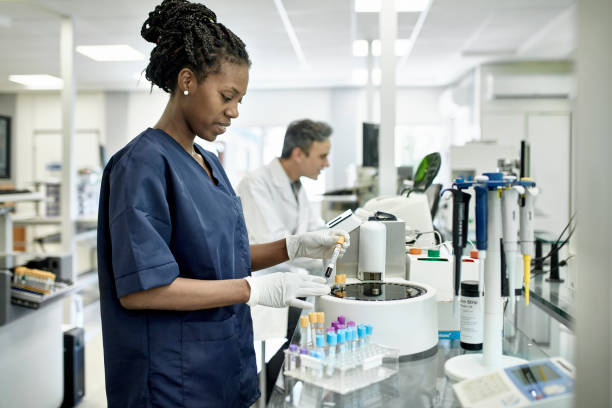Laboratory techniques at https://mylab-plus.com/ refer to the various methods and procedures used in scientific research and analysis . In Malaysia, laboratory techniques are widely used in different fields, such as medical research, environmental monitoring, and food safety testing. In this article, we will provide an overview of laboratory techniques, their relevance, and importance in Malaysia.
Types of Laboratory Techniques

Laboratory techniques can be broadly classified into different categories based on their applications, including:
Microscopy: Microscopy techniques involve the use of microscopes to observe and study small objects, such as cells, microorganisms, and tissues.
Chromatography: Chromatography techniques involve the separation of different components of a mixture based on their physical and chemical properties, such as size, charge, and polarity.
Spectroscopy: Spectroscopy techniques involve the use of different types of electromagnetic radiation, such as light, to study the properties of matter, such as its composition and structure.
Electrophoresis: Electrophoresis techniques involve the separation of charged particles, such as DNA and proteins, based on their size and charge.
Relevance and Importance of Laboratory Techniques
Laboratory techniques are relevant and important in scientific research and analysis for several reasons. Firstly, laboratory techniques provide a means of collecting and analyzing data in a controlled and systematic way. This helps to ensure the accuracy and reliability of the results obtained.
Secondly, laboratory techniques allow researchers to study complex systems and processes that may not be observable through direct observation. For example, microscopy techniques can be used to study the structure and function of cells and tissues, while chromatography techniques can be used to analyze the composition of a mixture.
Lastly, laboratory techniques have practical applications in various fields, such as healthcare, environmental monitoring, and food safety testing. For example, laboratory techniques can be used to diagnose diseases, monitor air and water quality, and detect foodborne pathogens.
Tips for Successful Laboratory Techniques

Follow Standard Operating Procedures (SOPs): Follow established SOPs and protocols to ensure accuracy and consistency of results.
Practice Good Laboratory Practices (GLPs): Adhere to good laboratory practices, such as proper record-keeping, instrument calibration, and waste management, to maintain the integrity and safety of the laboratory.
Maintain a Clean and Safe Laboratory Environment: Maintain a clean and safe laboratory environment by properly disposing of hazardous waste, wearing appropriate personal protective equipment, and following proper storage procedures for chemicals and equipment.
Quality Control: Implement quality control measures, such as regular calibration of instruments, to ensure accuracy and reliability of results.
Conclusion
Laboratory techniques are an essential component of scientific research and analysis in Malaysia. Microscopy, chromatography, spectroscopy, and electrophoresis are just a few examples of the wide range of laboratory techniques used in different fields.
Laboratory techniques provide a means of collecting and analyzing data in a controlled and systematic way, and they have practical applications in healthcare, environmental monitoring, and food safety testing.
By following established SOPs, adhering to good laboratory practices, and implementing quality control measures, researchers can ensure the accuracy, reliability, and safety of laboratory techniques. So, embrace the relevance and importance of laboratory techniques in your field of study or work and make a difference in Malaysia.

